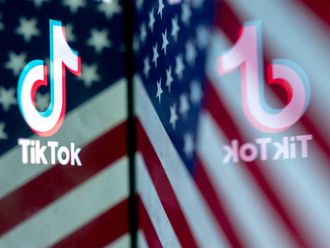Washington: House Speaker Paul D. Ryan on Saturday criticised President Donald Trump’s pardon of the former Arizona Sheriff Joe Arpaio, making him the most prominent Republican to voice concern about the message the President had sent regarding his commitment to the rule of law.
“The speaker does not agree with this decision,” a spokesman for Ryan, Doug Andres, said in a statement. “Law enforcement officials have a special responsibility to respect the rights of everyone in the United States. We should not allow anyone to believe that responsibility is diminished by this pardon.”
Trump’s end-of-the-week pardon of Arpaio, a campaign supporter who had been convicted of defying a court order intended to halt racial profiling of Latinos, touched off a political outcry that did not abate on Saturday even as much of the nation was focused on a hurricane that pummeled Texas.
Democrats joined in condemning the President’s decision, which was made public by the White House on Friday night as Hurricane Harvey, a Category 4 storm, churned toward the Texas coast. Some Republicans praised the move, but most remained silent about a decision that further entangles the party in racial controversy.
Trump ran on a message of curtailing immigration, and his message dovetailed with Arpaio’s. Republicans who were caught by surprise by Trump’s victory have been grappling with how to stand up against racism while making sure they do not alienate the older, whiter demographic of the party’s base.
Sen. John McCain, Republican Arizona, said the President’s pardon “undermines his claim for the respect of rule of law, as Arpaio has shown no remorse for his action”. The state’s other Republican senator, Jeff Flake, who has been attacked by Trump and who is facing a primary challenge, was more muted.
“Regarding the Arpaio pardon, I would have preferred that the President honour the judicial process and let it take its course,” Flake tweeted.
Rep. Trent Franks, another Arizona Republican, said he saw it as a just end to the saga of Arpaio’s legal entanglements.
“The President did the right thing — Joe Arpaio lived an honourable life serving our country, and he deserves an honourable retirement,” Franks posted on Twitter.
Outside Arizona, most Republicans stayed quiet. But Democrats laced into the President.
Jesse Lehrich, a spokesman for Organising for Action, the political group that grew out of former President Barack Obama’s campaigns, said the pardon “signals a disturbing tolerance for those who engage in bigotry”.
He added: “It sends an unsettling message to immigrants across the country. And it’s a repudiation of the rule of law. As a massive hurricane is hurtling toward the southern United States, the White House is focused not on saving lives, but on pardoning a man who committed unlawful acts of racial discrimination.”
The White House announced the pardon amid preparations for the storm, but the federal government said it was on top of the looming natural disaster.
Many presidents have issued controversial pardons. Gerald R. Ford pardoned Richard M. Nixon. Bill Clinton pardoned Marc Rich, one of his donors, in his final days in office. By definition, pardons absolve someone of having broken the law.
But Arpaio, who had yet to be sentenced in his criminal case, has long been accused of abuses against minorities, including repeated violations of Fourth Amendment protections against unreasonable searches and seizures. His pardon struck a different political chord.
Paul Begala, a Democratic strategist who advised the main super PAC supporting Hillary Clinton in 2016, suggested that Trump was offering a different type of signal — one to people who might be approached by Robert S. Mueller III, the special counsel investigating ties between the Trump campaign and Russia, as well as possible obstruction of justice by the president when he fired the FBI director, James B. Comey.
“The Arpaio pardon was awful in and of itself, but I also think it was a signal to the targets of the Mueller investigation that, ‘I got your back’,” Begala said on Bill Maher’s HBO programme on Friday night.
David Axelrod, who was a senior adviser to Obama in the White House, saw a different motive at play. Trump, he argued, was sending a signal after removing his chief strategist, Stephen K. Bannon, a nationalist who is an icon among segments of the President’s base.
“I think this was a nod to the base, post-Bannon, that he’s still with them,” Axelrod said.
Ari Fleischer, who was a press secretary under President George W. Bush, said that pardoning Arpaio did not “break new ground” in a decades-long debate over immigration.
But, echoing Begala, he said the concern was the message it sent to others who might receive pardons.
He said Bush used to wonder why Presidents had the pardon power to begin with. “It does strike me as a constitutional anachronism,” Fleischer said.
“One should not be able to break the law thinking they have a protector in chief,” he added. “If mischief is connected to the White House and the President can pardon those who engaged in that activity, it leads to unlimited power.”












